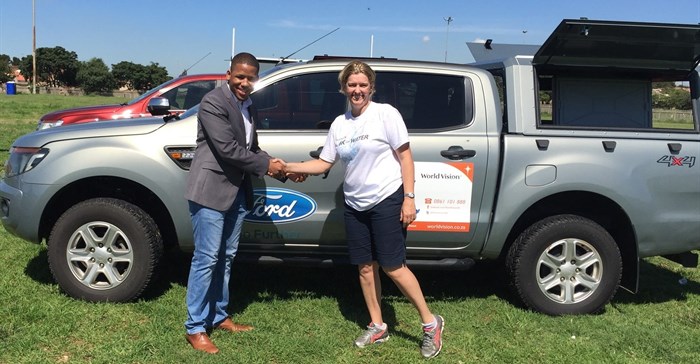
Top stories






More news














The two vehicles, which have been specially modified as mobile clinics, will support two area development programmes (ADPs) in the province in order to provide health education, access to medication and support child nutrition for approximately 20,000 children and 10,000 adults within its first year.
"There is a desperate need for basic healthcare and education in the Eastern Cape, particularly in the impoverished and remote rural areas," says Paula Barnard, national director of World Vision South Africa. "These two Ford Rangers will be invaluable by enabling us to better serve the health needs of communities within the province."
One of the Rangers will be deployed for the Mbashe ADP, based in Idutywa within the Amathole District near East London. The second vehicle will serve the Umzimvubu ADP based in Matatiele, which covers the Alfred Nzo District.
Having been converted into mobile clinics by RMAA South Africa through the installation of a battery powered refrigerator, the Ford Rangers will be used to access hard-to-reach areas in order to provide essential health services and dispense chronic medication for conditions such as hypertension, diabetes and asthma.
Additionally, the mobile clinics focus on nutrition for children under the age of two, provide vaccinations, administer Vitamin A and deworming supplements, and monitor the children's overall growth and development. In partnership with the Department of Health, community information is tracked in order to monitor medical and child protection services.
RMAA South Africa also equipped the vehicles with presentation equipment including battery powered projector, computer and portable screen to support a wide range of education and awareness campaigns for child healthcare and protection, as well as gender-based violence. This helps stimulate community conversations and the formulation of action plans around these important social issues.
"All of these initiatives are designed to achieve our vision of a better, healthier and more prosperous world for our communities and, specifically, our children," concludes Barnard.